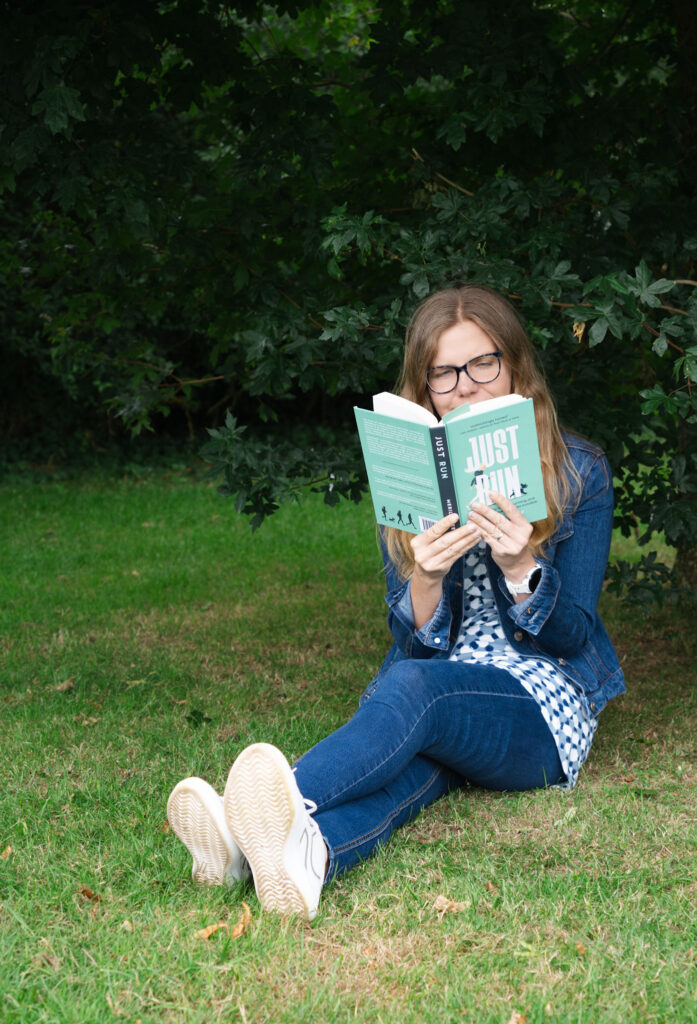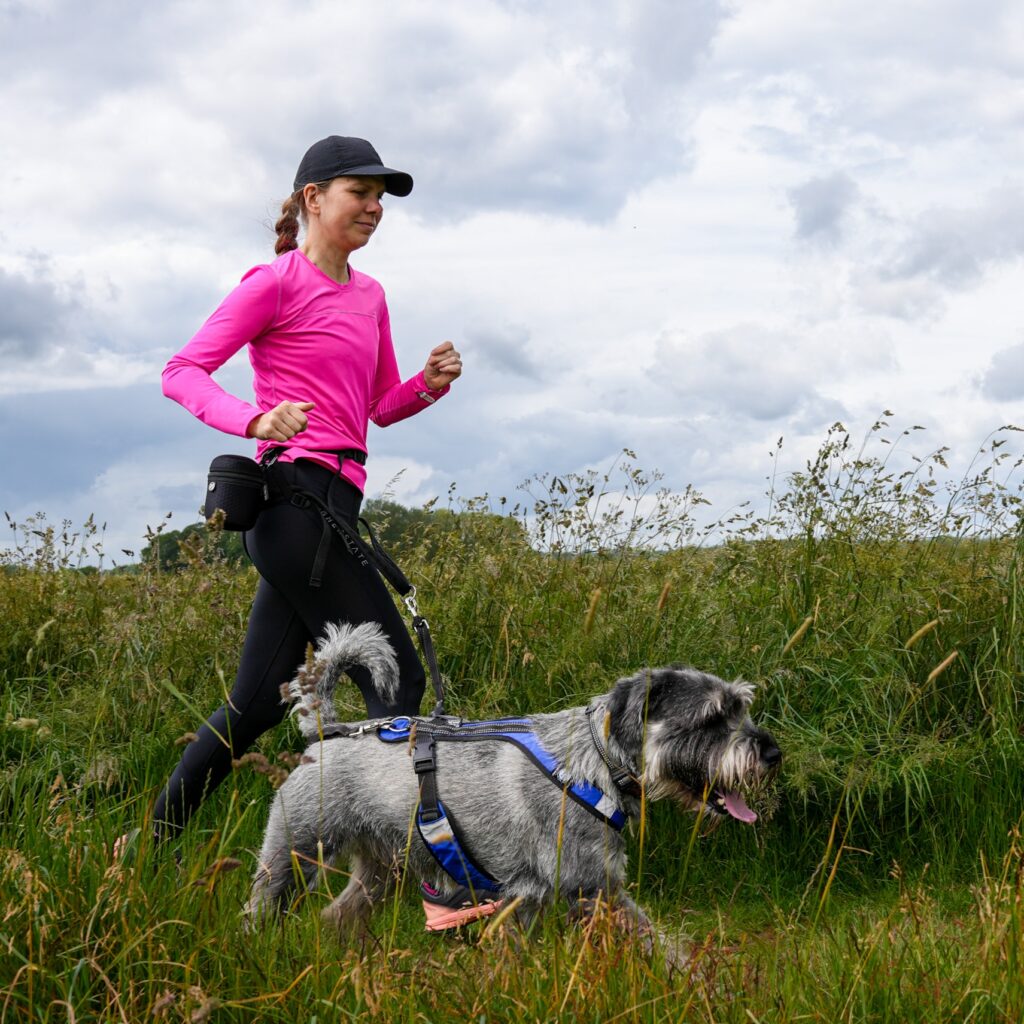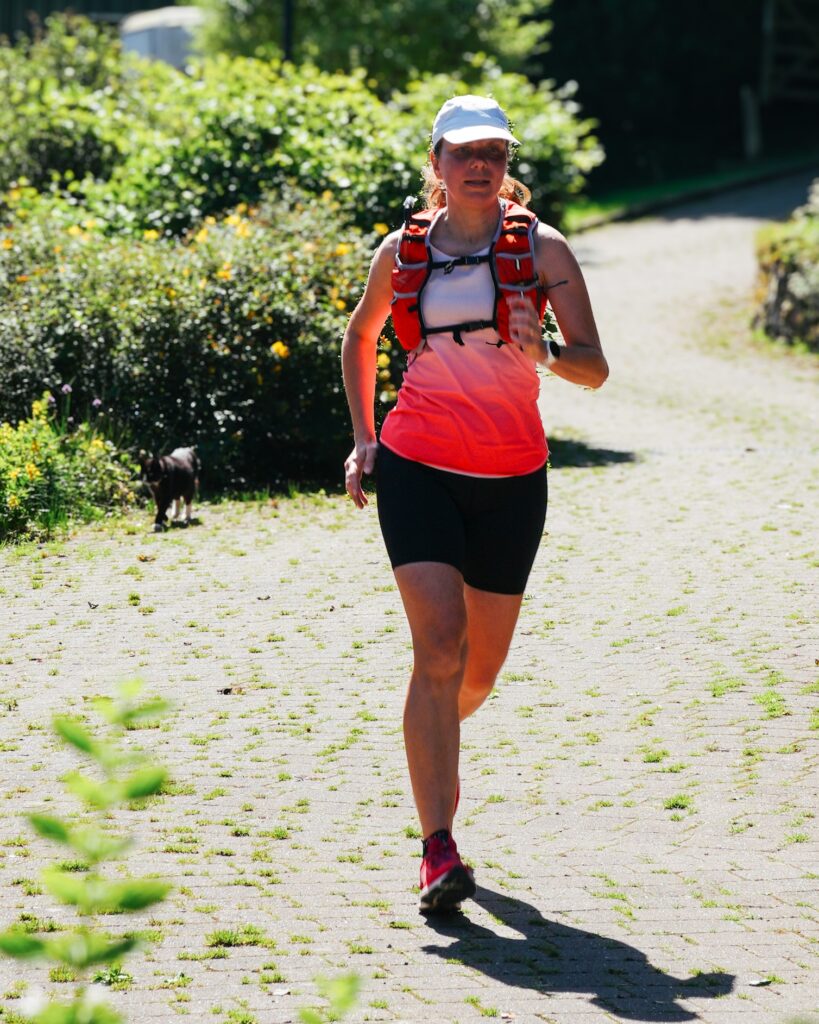Merili Freear is an inspiring author, marathon runner, and mental health advocate whose debut book, Just Run, captures the transformative power of perseverance, resilience, and self-discovery. Having once viewed running as an impossible feat, Merili not only conquered her first marathon but also found her voice as a writer, sharing her journey to inspire others to pursue their own seemingly unattainable goals.
In this interview, Merili opens up about the pivotal moments that led her to write Just Run, the lessons she’s learned from running and writing, and how both have helped her navigate challenges like imposter syndrome, personal loss, and depression. Through her story, Merili proves that every step—whether on the track or on the page—matters in the pursuit of growth and fulfillment.
Can you share more about the moment you decided to write ‘Just Run’? What inspired you to take that leap?
I’ve always had this feeling that I’ve wanted to write a book, but it was always never the right time, plus I didn’t know what I wanted to write about.
After completing my first marathon, I started writing exercises to get more creative in general. I wrote three pages every morning about anything that came to my mind, and after a few weeks of these morning pages, I started to write Just Run. For someone who hated exercise as a child and despite trying running in my teens and twenties I never stuck with it. Running a marathon felt an impossible task, and after completing it, I wanted to show others that they could accomplish something they felt was impossible too.

How did your experience running a marathon influence your approach to writing your book?
Writing a book is definitely a marathon in itself. You need to set your pace, and keep the momentum going, have patience, not look too far ahead, and you’ll get there, so there’s many similarities with running a marathon.
You mentioned struggling with imposter syndrome. How did you overcome those doubts and continue with your writing project?
When I first started to write about my first marathon, I questioned whether my achievement had been a mere fluke. I wondered who would want to read about my struggles with marathon running. People run marathons all the time, right? I questioned whether I truly possessed the essence of a writer and worried about writing in English since my first language is Estonian. Then it struck me — writing and running aren’t so different after all. I decided to approach my writing the same way I approached my running: by taking those initial steps out of my comfort zone and embracing the challenge of something new.
Can you tell us about a specific challenge you faced during your marathon training and how you dealt with it?
I have run several marathons and ultras, and each has its own challenges. With the first one, it was the question of whether I could do it. With the subsequent marathons and ultras, I suffered injuries during training and was afraid that my training wasn’t sufficient. With long distances, I’ve learnt that although physical fitness is obviously important, it’s just as important to prepare your mind as well as your body. Mental preparedness is especially important for ultras. The key is to believe that it’s possible and that you can do it. I regularly visualise myself crossing the finish line feeling strong during my training, and that is one thing that definitely helps me.

How has your battle with depression impacted your writing and running journey?
I have struggled with depression on and off for over two decades, and I have learned to cope with it. The main thing for me is accepting how I am feeling and knowing that it will eventually pass. I run for my mental health, but when I am feeling really down, I don’t want to run. I have learned to accept this and to give my body more rest when it happens. But I also know how much exercise helps me. Even though I don’t always want to, I force myself to go for a run or do a little bit of strength training or yoga, or hop on the exercise bike in our garden shed. Movement is medicine, and it helps lift at least a little bit of those dark clouds. I have learned that when it comes to writing, like with running, it’s important to just start. Even if it’s just half a page a day, you do what you can and then celebrate those small wins. And it’s okay to take a day off when your body and mind need it.
What role does running play in your mental health routine, and how does it help you manage depression?
Running and exercise in general plays a big role in my mental health routine. Going out for a run, especially in the countryside, nearly always boosts my mood.
Can you describe how personal losses, like the passing of your father and dog, affected your running and writing?
In early 2021, I lost my father to Covid, followed by my beloved dog a month later. It all happened around the same time I got injured. Suddenly, the form of therapy I knew and had learned to love—running—was gone, and I was struggling to cope. It is important not to rely on only one form of therapy (in my case, running) and to have other forms available to you. So, I started cycling on an indoor bike around that time, and it became a good form of cross-training, and continued even after I was able to run again. Me and my son went for many walks in our local woods. I also picked up my art supplies and painted. I think anything that helps you get out of your head a bit and be present in the moment is helpful. Distraction is key, I find.
What advice would you give to someone struggling with self-doubt about pursuing a creative project?
Just go for it. After I wrote Just Run, two of my friends started to write their own books, something neither of them ever thought they wanted to do.
My husband wrote and recorded an album several years ago. I really admired his courage to start a creative project like this and finish it with very beautiful results. If you don’t try, you never know what is possible.
This is something I have learned from my running. I never thought that I was capable of running the distances that I have run. It’s applicable to so many other areas of your life. You can accomplish so much more than you think—all you need to do is try.

What has been the most rewarding part of writing ‘Just Run’?
The feedback. When Just Run was ready, I still wasn’t sure if it was a good book. As my endorsements started to come in, I was in awe of all the kind words my endorsers were saying about it. Just Run has shown me that I am capable of a lot more than I thought, and I love hearing from readers that my book has inspired them to pursue their own goals or lace up those running shoes after a long break.
How do you balance your time between running, writing, and managing your mental health?
First of all, I am a wife and a mother. My family is the most important part of my life, so I plan my activities around family life, and during school term times I have set routines. I walk our dog and do strength training each day before my son wakes up. After taking him to school, I run on some days (I don’t run every day) and then start working on my projects. On weekends, I do longer runs, which are a very important tool in my mental health toolkit. These runs show me that I am capable, give me plenty of time to think, take in nature, and be present and mindful. I try to get plenty of rest and reduce my screen time in the evenings, choosing to read instead. It’s hard at times though. The most important thing is to be kind to yourself, and when things don’t work out perfectly, instead of beating yourself up, just try to do better next time.
Are there any specific writing practices or routines you followed that helped you overcome your challenges?
I started my writing routine with morning pages. Every morning, I wrote three pages of whatever came to mind and rarely read back what I wrote. After a while, I began writing my book. To make the process easier and less overwhelming, I started a private blog on WordPress where I wrote a little bit at a time. It could have been just the beginning of a chapter or maybe a chapter title with some ideas I wanted to cover in that chapter. Over time, I had enough material that I compiled into a Word document and then shaped into a book. Printing out what I had written and reading it on paper also helped me a lot. I got many ideas this way. In later stages, reading other books sparked ideas here and there, so I kept a pen and notebook next to my bed to jot down these ideas. Some of my book was written during my long runs. I recorded my ideas during those runs and wrote them down later when I was at home.
What message do you hope readers will take away from your book?
You can accomplish more than you think. You don’t have to run a certain number of days a week or cover a set mileage. All of that is irrelevant. You do you. Just run.
Can you share any insights or tips for women who want to start running or writing but feel overwhelmed?
When it comes to running, I recommend using the Couch to 5K program. If it feels too much or the program progressing too quickly, just repeat the weeks until you feel comfortable. Don’t compare yourself to others. It’s your journey—do it your way. Just run.
The same goes for writing. Have the courage to start; don’t let overthinking hold you back, and do it your way. You are capable of much more than you think.
How has your journey with writing and running shaped your personal growth and resilience?
It has shown me that I can do much more than I ever thought possible. I have made a complete career change and am no longer stuck in a job I don’t like. I’m trying to live in a way that works best for me, not according to what society expects. I am more honest and authentic. I was always embarrassed about my depression, but writing about it in Just Run has set me free, and it’s no longer something I feel I need to hide. I hope my writing will help others feel free too.






